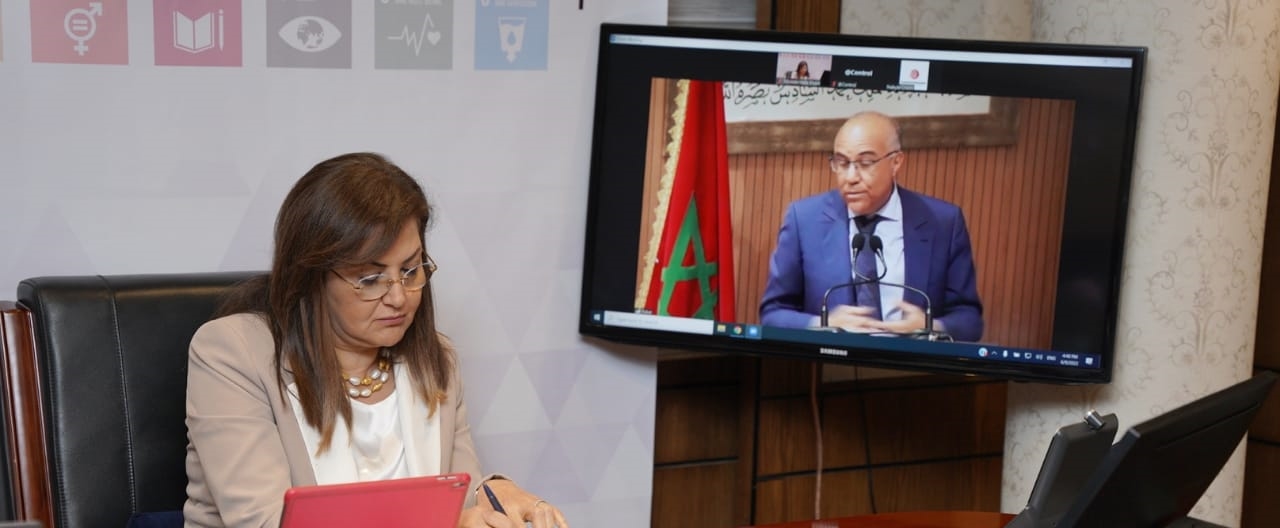Egypt’s Minister of Planning and Economic Development participates in the high-level round table on the informal economy in North Africa

10 June 2022
H.E. Dr. Hala El-Said, Minister of Planning and Economic Development participated recently via video conference, at the high-level round table to discuss the informal economy in North Africa, which was held by the International Monetary Fund and Mohammed V University in Rabat.
During the discussion, Dr. Hala El-Said, Minister of Planning and Economic Development, said that although Egypt has made great progress in building a strong and resilient economy since launching the first phase of the National Economic and Social Reform Program in 2016, some major challenges remain, including the sector The informal sector, which employs nearly half of the labor force and represents 30% of Egypt's GDP.
El-Said explained that the added value of the informal sector is low, as one-third of the domestic income comes from this sector, but its productivity is low in Egypt, explaining that the lack of integration between the formal and informal economic sectors in Egypt has been a challenge for many years.
El-Said added that the demand for informal labor services in the market decreased as a result of the Covid-19 pandemic and geopolitical changes, which negatively affected the source of workers' income and their job security.
El-Said affirmed the Egyptian government's commitment at that stage to preparing the environment to enable all stakeholders to play a key role in the pursuit of comprehensive, balanced, and sustainable growth.
El-Said emphasized that the Ministry of Planning and Economic Development continued to direct public investments toward the most vulnerable groups, to improve the quality of life of citizens and increase access to public services.
El-Said pointed out that Egypt has sought to enhance the dynamism of the economy since the launch of Egypt's Vision 2030, as the government focused on investing in several sectors to achieve sustainable and comprehensive development by creating sustainable decent jobs in highly productive sectors, and reducing informal employment from total employment over the past few years.
On the informal sector and development rates, El-Said explained that the Egyptian government launched the National Structural Reform Program, which includes an expanded set of targeted reforms at the structural and legal levels, targeting the real sector and focusing on enhancing the business climate, with goals to stimulate investments in production.
El-Said also indicated that the Ministry of Planning and Economic Development signed a memorandum of understanding to establish a sustainable governance system for a comprehensive entity of the Sectors Skills Council, in partnership with ministries, representatives of the private sector, and non-governmental organizations, to develop a coherent strategy to establish and develop social services companies in Egypt and to cooperate in areas that enhance labor market efficiency.
El-Said added that to face the recent shocks, with the economic repercussions of the war in Ukraine, the government has allocated 130 billion pounds to deal with the repercussions of global economic challenges and mitigate their effects on citizens, in addition to increasing the additional monthly incentive for state workers.
The government has also implemented amendments to the income tax to reduce the burden on citizens and stimulate investment, in addition to announcing the start of increasing the salaries of workers in the private sector with a minimum wage of EGP 2,400 Egyptian , which is the first of its kind for the private sector.









